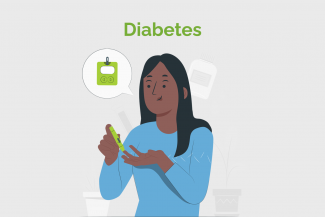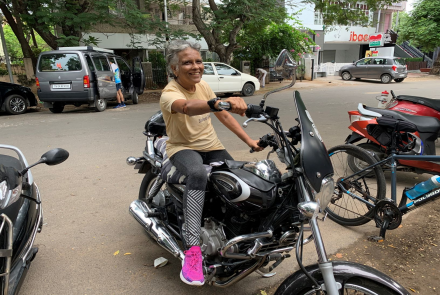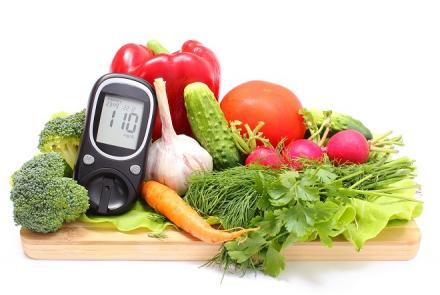Diabetes Mellitus is a metabolic disorder in which the body has difficulty regulating its blood glucose or blood sugar level.
The burden of diabetes is increasing globally, particularly in developing countries. While the causes are complex, but the increase is in large part due to rapid increases in overweight, including obesity and physical inactivity. There is good evidence that a large proportion of cases of diabetes and its complications can be prevented by a healthy diet, regular physical activity, maintaining a normal body weight and avoiding tobacco.

Type 1 diabetes cannot be prevented but onset of Type 2 diabetes in most cases may be prevented by watching your diet, managing your weight and changing your lifestyle. At the very least the progression of Type 2 diabetes can be managed.
Regular screening for diabetes plays a very important role. Undergoing routine screenings for diabetes, especially if there is a family history of Type 1 / Type 2 diabetes or presence of risk factors can help detect the condition at an early stage and enable timely intervention and management.
Simple steps to prevent Type 2 Diabetes
- Shed the pounds! Lose weight and maintain a healthy BMI to prevent risk of Type 2 Diabetes
- Get moving! A daily cardiovascular exercise regime of minimum 30-40 minutes is most beneficial.
- Watch what you eat! A diet low in carbohydrates, sugar, fatty & processed foods is increasing becoming the choice for a healthy lifestyle.
- Reduce alcohol intake!
- Limiting sugary drinks and processed foods: Minimizing the consumption of sugary beverages and processed foods that are high in added sugars and unhealthy fats can help lower the risk of developing diabetes.
- Reduce salt intake for maintaining a healthy blood pressure as high blood pressure is associated with an increased risk of diabetes.
- Kick the butt! Quitting smoking is known to significantly reduce risk of diabetes and heart conditions.
- Unwind! Keep stress at bay by using relaxation techniques such as yoga, deep breathing, meditation etc.
References
- https://pdb101.rcsb.org/global-health/diabetes-mellitus/monitoring/comp…
- https://www.diabetes.org.uk/diabetes-the-basics/diabetes-treatments
- https://www.mayoclinic.org/diseases-conditions/type-1-diabetes/diagnosi…
- https://www.nhs.uk/medicines/insulin/insulin-for-type-1-diabetes/
- https://www.medindia.net/drug-price/insulin.htm (for insulin available in India)
- https://www.sciencedirect.com/science/article/pii/S0171933523000444
- https://pubmed.ncbi.nlm.nih.gov/26045324/
See this in an infographic: 6 Easy Ways to Prevent Diabetes
Read more in the Diabetes Management section
Community
Condition
















